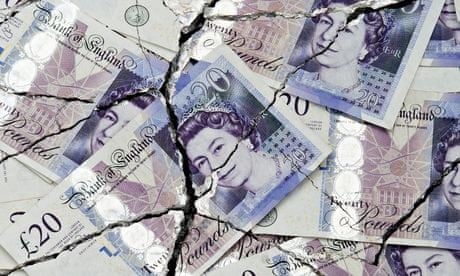A big increase in the number of people becoming insolvent in England and Wales has prompted fresh warnings about the fate of financially stretched households when interest rates start to rise.
There were 27,029 personal insolvencies in England and Wales in the second quarter, a 5.1% rise on a year earlier.
The increase was driven by a 20% jump in the number of people entering into individual voluntary arrangements (IVAs) to a record high of 14,571, the Insolvency Service, which published the figures, said.
Some experts said it was evidence that creditors were more confident about recovering debts in an improving economy. But others insisted it showed more families were on a financial knife-edge after years of falling real wages and government cuts.
"Aside from all the talk of economic recovery, it's clear that people are really struggling," said Bev Budsworth, the managing director of The Debt Advisor.
She said hundreds of thousands of people were only just about making their monthly debt repayments because interest rates are still at a record low of 0.5%. But financial markets are pricing in a rate hike by the end of the year against a backdrop of stronger economic growth.
"The acid test will be when the Bank of England starts to raise its base rate and people's mortgage payments follow suit."
Brian Johnson, insolvency partner at the chartered accountants, HW Fisher & Company, said the figures showed Britons were shrugging off austerity and had been tempted to overextend.
"With as many as a quarter of mortgage holders facing unaffordable payments if interest rates rise to a more normal level of 3%, a personal insolvency storm could be gathering," he said.
But Matthew Chadwick, business restructuring partner at advisors BDO, said with the economy looking healthier, those with bad debts were now more likely to be asked to pay them back.
"A continuing rise in the number of personal insolvencies in the next 12-18 months is therefore likely," he said. "Today's rise in individual voluntary arrangements is typical at our position in the economic cycle and need not be cause for alarm."
